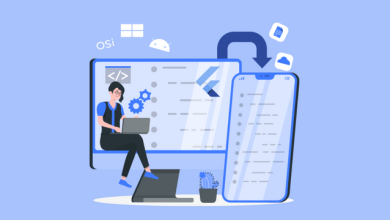Most Important Internet Security and Safety Advice Top 10

Keeping yourself and your information safe when using the Internet for personal or professional purposes. Is more important as the number of people who have access to the Internet grows daily. It’s true that all the information may seem daunting. But you don’t have to be a computer whiz to protect yourself when browsing the web. Even the most tech-phobic individuals may learn to safely navigate the internet. With a little preparation and the right set of tools at their disposal.
All of these risks may be drastically mitigated by using a basic set of precautions, however. Let’s think about some of these precautions now.
1. Always use two-factor authentication if it’s available.
With two-factor authentication, users are required to provide a second piece of information. Before they can access their online accounts. Some sites, like Google, will email you a code. Whenever you log in to authenticate your identification. While others will provide little devices that you can take around to create the code. Authenticator apps are also available for all the most popular mobile operating systems. Check the options of your email, online store, and bank accounts to see whether they provide two-factor authentication.
2. A subscription to login reminders
Websites like Facebook use this extra layer of protection instead of two-factor Authentications. If your account is accessed from a place you have not authorized. You will receive a warning via your preferred method of contact (email, app, instant messaging) immediately. An excellent extra safeguard, this provides you with safety everywhere you go. You might opt to take a look at https://firstworldneeds.com/ to know more about Internet security. If the site you are visiting has this option, you may find it under the site’s security settings. This is the case with online banking and social media sites.
3. Make use of a Verified Method of Access
Most of us have created accounts on websites with weak passwords. Because we naively believed that no one would ever try to break into our accounts. However, it’s possible that’s not the case. When people create a password for one website, they often end up using it for others. The greater the ease with which a hacker may get into your account. The greater the likelihood that many accounts will be compromised. Passwords of 10 characters or over are considered secure. Since they make it more difficult, even for a professional hacker, to guess what you’re trying to access.
4. Frequently changing your passwords is a must.
There’s probably a good reason why your workplace insists on frequent security safeguards for your email. If your password has been stolen in any way, the only way to prevent unauthorized access to your accounts. Is to change your password often across all of them. A pro suggestion is to add a reminder to your calendar every three months. That will take you to each of your accounts’ settings pages. It’s the easiest to use, and it’s also the fastest to implement updates often.
5. Only use your accounts in safe locations.
Even if the network has been infiltrated, all it takes is 30 seconds of entry to your email. While using the free Wi-Fi just at café to get all the information a thief needs. Despite the obvious benefits. If you need to access your accounts when away from home or the office. You should look into getting a VPN (Virtual Private Network). That masks your IP address and provides a secure tunnel back to your network.
6. To Gain Secure Access Via HTTPS
There is an option to always use an encrypted connection (HTTPS). In many applications and on many popular websites. Using this connection makes it far more difficult for data thieves. To piece together your login credentials since it adds another layer of scrambled protection. If you own a website, you should absolutely invest on a wildcard SSL certificate. Look for a lock icon in your browser’s address bar or for HTTPS at the beginning of the URL. To determine if you are using a secure connection.
7. Raise the frequency with which spam is filtered out and avoid opening any unfamiliar message.
An email alerted you that there is a new pending purchase, and you should go to your account page to look it over. Many phishing schemes begin with something that appears legitimate and harmless. But in reality directs unsuspecting users to fake websites that steal sensitive information. If you receive an email from any of the record keeping sites. Instead of clicking on the links provided, open a new tab and go straight to the site. It may slow you down for a few seconds. But it will prevent you from visiting any legitimate-looking phishing sites. Don’t give out your login information to anyone who doesn’t seem legit; legitimate services won’t ask for it.
The vast majority of these messages may be prevented from entering your inbox. By increasing the sophistication of the garbage sorting features available in your email client software.
8. Please update your safety software.
Make sure you’re utilizing the most up-to-date version of any security software you’re using. And that the appropriate security settings might turn on. Protecting yourself and your device from malware. Like keyloggers and data miners is the main purpose of security software. Having this extra safeguard in place ensures that any and all data you download. Or views on your mobile devices, tablets, and desktop computers remain safe.
9. Be sure to make backups of any critical data.
If you want to prevent complete data loss. In the case that a virus or even other Trojan infects your computer. You should regularly back up your important files to an external drive or storage site (the “cloud” or a flash drive, for example).
10. One must use caution while choosing online friends.
Many people you meet on the internet are not who they say they are. Certainly, they might not even exist. According to InfoWorld, fraudsters frequently use fake social network profiles. To mislead unsuspecting Web users into handing over their financial information. Take the same precautions and use common sense in your online interactions as you would in person.
While there are risks to your personal information stored online. You can minimize those risks by following the safety advice provided here. And only using the official tools made accessible by the companies and their websites. Using these guidelines, you may better ensure your safety when surfing the web. Without sacrificing any of the conveniences that come with having constant internet connectivity.




